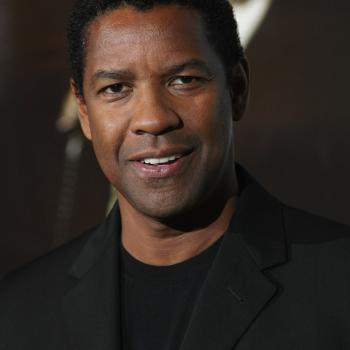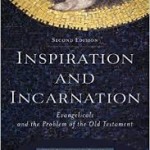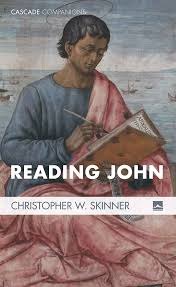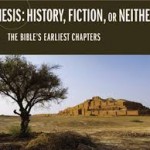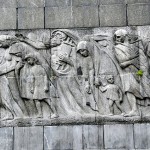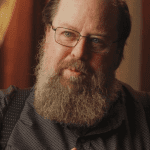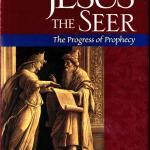 Today’s “aha” moment, the second installment in the series, is by John Byron (PhD University of Durham), professor of New Testament at Ashland Theological Seminary. Among his books are Cain and Abel in Text and Tradition: Jewish and Christian Interpretations of the First Sibling Rivalry and a recently released commentary on 1 and 2 Thessalonians
Today’s “aha” moment, the second installment in the series, is by John Byron (PhD University of Durham), professor of New Testament at Ashland Theological Seminary. Among his books are Cain and Abel in Text and Tradition: Jewish and Christian Interpretations of the First Sibling Rivalry and a recently released commentary on 1 and 2 Thessalonians.
**********
When Pete asked me to write on my faith journey as a biblical scholar I was glad to oblige. This is a topic that I have blogged on in the past and something I talk about with my students regularly.
It seems that Greg Carey’s Huffington Post article “Where do Liberal Biblical Scholars come from?” struck a chord with many. I found myself agreeing with many of Greg’s points, but especially with his statement: “The best way for conservative churches to produce ‘liberal’ biblical scholars is to keep encouraging young people to read the Bible.”
I suppose we all come to this juncture in our faith journey at various times and in various ways. Like Greg, the questions that began confronting me were a result of reading the Bible. And it was the result of having a solid knowledge of the Bible’s contents that caused questions to surface and sometimes got me in trouble.
The earliest example occurred in Bible College. The instructor was discussing Mark 2:23-27, which narrates the challenge of the Pharisees to Jesus over his disciples picking grain on the Sabbath. Jesus responds to their question by referring to the story in 1 Samuel 21:1-9 of David and his men eating the consecrated bread from the tabernacle.
The problem, however, as I pointed out to my teacher, is that Jesus got it wrong. The story in 1 Samuel 21 relates how David fled from Saul alone. When he stops at the tabernacle and asks Ahimelek for help the priest enquires why David is alone. David seems to lie when saying that his men well meet him later (v. 2).
Moreover, Mark has the wrong priest. In 2:26 Jesus states that the priest was Abiather, but 1 Samuel 21 clearly states that it was Ahimelek.
When I raised these points with the teacher, in the middle of class (I wasn’t as tactful then) he looked at me with confusion. He had never noticed these discrepancies before. I was asked politely to be quiet. Years later I was pleasantly surprised to read that it was this very same passage in Mark that signaled the beginning of Bart Ehrman’s faith journey, although he and I are, in many ways, in very different places.
In the end, of course, it wasn’t just one problem like Mark 2:26 that caused me to reexamine how I understood the Bible—but it was a hook and it began a process. Over time numerous passages forced me to conclude eventually that the Bible wasn’t a history book, meaning the authors were not trying to give me a blow-by-blow account from creation to the end of the first century.
Instead I came to realize that the Bible was first and foremost a theological book that contains history and uses history to direct me towards God. I would come to realize more and more that true faith—the faith God calls us to—was not focused on the Bible, but on the God to whom the Bible bears witness.
Now some will say to me: “God’s plan is clearly laid out for us in the Bible. Had you not gone and destroyed your belief in the word of God through theological education you would not be in the fix you find yourself!”
Well perhaps they are correct. But it is too late now for me to change what has happened and I am unconvinced that I will ever be able to revert back to the way I was. My approach to the Bible is as complicated as everything else in my pursuit of faith.
Here’s where I’ve come out: I consider the Bible to be a book written by fallible human beings who were attempting to describe their own faith and religious experiences and did so in an imperfect way. Yet at the same time, what I find within the Bible are words of life.
I am all too aware of the difficulties that arise when reading the Bible and the way that its influence on society has at times caused undue suffering even in the most sincere pursuit of faith. But I also cannot escape the wisdom found on its pages nor can I ignore the way it has helped to shape the modern world in a positive way. But in the end I am not called to have faith in the Bible but in God.
There are some who would read what I have just written and conclude that I have become one of the many casualties of a (liberal?) theological education. A particular encounter in my “pre-educated” life seemed to predict such an outcome.
My wife and I had served in a church for three years. As we were preparing to leave and begin my seminary training I received the usual jokes about attending “cemetery” and becoming too smart for my own good.
One individual in particular warned me in an almost conspiratorial tone, “Be careful brother, too much of that stuff can be dangerous and cause you to take your eyes off of God.” I assume that he meant I would lose my faith.
In some ways I think he is right. My education has been extremely dangerous to my faith, at least a faith that was taught to me, a faith that is shaken by things like Mark 2:26. On the other hand, through my serious study of the Bible and the questions that arise from it, I continue to find that faith—a true resting and trusting in God—is more present to me now than ever before.
I am like the man who said to Jesus, “Lord, I do believe. Help me in my unbelief!” As a biblical scholar, I think that’s is a good place to be.




